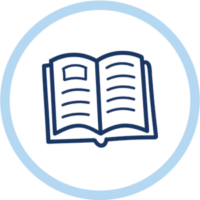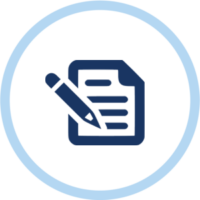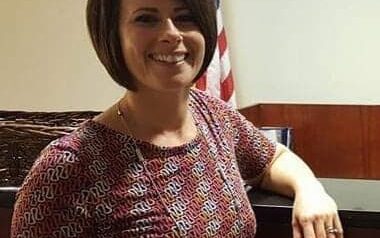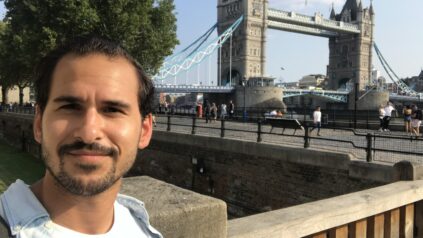*NOTE: This program is only open to residents of Maine, New Hampshire, and Vermont. International students cannot get a student visa for this program.
Master of Social Work (MSW)
The online Master of Social Work (MSW) develops proficient and ethical social work professionals who are committed to social change in a variety of organizations, specializations, and roles. We provide the highest quality education for Master’s prepared social workers who are ready to make a difference.
We offer small classes, experiential learning, seminars, and challenging field internships. Our curriculum reflects and promotes advances in contemporary advanced social work practice to develop the knowledge, values, and skills necessary to meet the unique needs of rural areas. Graduates are able to undertake diverse and complex social problems and apply multi-level assessment, intervention, and evaluation strategies.
The goals of the MSW program are to:
- Educate students to be competent and effective at working across service delivery systems utilizing a strengths-based approach and respecting human diversity
- Prepare competent and effective advanced generalist social workers for the purposes of enhancing human well-being, preventing and alleviating human suffering, and advancing social and economic justice
- Prepare students to work ethically with clients and client systems across the entire life span
- Initiate and promote research and knowledge-building activities by faculty and students, for the purpose of improving the quality of social work practice
To learn more about the MSW program, visit the School of Social Work’s website.
Advanced Standing
Advanced Standing allows specially qualified students who have earned a BSW in the last 7 years degree to earn their MSW with 46 credits in two years rather than 63 credits in three years. Students with Advanced Standing start the program in the summer by completing three 2-credit courses that serve as a “bridge” to the Specialized Year.
Format
The online Master of Social Work is a blended program with both online classes and in-person meetings. While most classes can be completed without being online on a particular day or time, there are some synchronous classes, like the field seminar classes, where you and your classmates attend class together online at the same time just as you would in a traditional on-campus class. The in-person meetings are with your cohort, a group of students who take all their classes together while working toward their degrees. Through cohorts, students are part of a learning community where they can collaborate with professors and develop relationships with their peers.
Cohorts meet on Saturdays twice a semester at the University of Maine in Orono, ME. Faculty will visit students at the field placement at least once a semester during their field practicum. The field practica may be completed at a qualifying organization geographically convenient to students in Maine, New Hampshire, or Vermont.
Students’ Experience Earning Their MSW Online
Curriculum
Our curriculum takes a developmental approach. Courses focus on practice and research methods, policy, human behavior, and social environments and are taken in a sequence designed to help build your skills as your progress through the program. The exact courses you’ll take will depend on if you’re in the regular program or have Advanced Standing.
Regular Program Curriculum
The regular program is 63 credit hours and is completed over three years. Students will complete the Generalist Year courses (23 credits), and Specialized Year courses (31 credits), and choose three electives (9 credits). To see an example of the Program of Study, visit the MSW website.
Advanced Standing Curriculum
The Advanced Standing program is 46 credit hours and is completed over two years. Students will complete three Bridging courses (6 credits), the Specialized Year courses (31 credits), and choose three electives (9 credits). To see an example of the Advanced Standing Program of Study, visit the MSW website.
Field Practicum
The Field Practicum is an integral part of the MSW program and provides students with an opportunity to integrate and use their academic learning in a practice setting.
During the field practicum, students will be mentored by an experienced social worker with an MSW. Faculty will also visit you and your mentor at your placement to provide support and make sure you’re getting the most out of your experience. Because faculty are traveling to different placements, this program is only open to residents of Maine, New Hampshire, and Vermont.
There are two field practica, both held on weekdays during normal business hours at a qualifying organization geographically convenient to you. The Generalist Year practicum (SWK 595) is 400 hours (approximately 14-16 hours per week) over the course of two academic semesters plus a two-hour weekly seminar. The Specialized Year practicum (SWK 695) is 500 hours (approximately 20 hours per week) over the course of an academic year plus a weekly seminar. Students in the regular program take both field practica while Advanced Standing students take only the Specialized Year field practicum.
It is possible to do the specialization year field practicum as a summer block placement after all coursework is completed, running from mid-May to mid-August; this requires about 40 hours/week.
For detailed information about the Field Practicum, visit the MSW website.
Courses
A list of course descriptions is available on the MSW website.
Bridging Courses
Only Advanced Standing students will complete the following courses (6 credits):
- SWK 530: Social Welfare Policy (2 credits)
- SWK 531: Social Work Practice (2 credits)
- SWK 533: Human Behavior and the Social Environment (2 credits)
Generalist Year Courses
Generalist Year courses provide an introduction to social work practices and a base to build a more advanced body of knowledge, practice, and skills. Students become prepared to intervene at the individual, family, group, organization, and community levels. Regular program students are required to complete the following courses (23 credits):
- SWK 540: Social Welfare Policy and Issues for Generalist Practitioners (3 credits)
- SWK 550: Human Behavior and the Social Environment I (3 credits)
- SWK 560: Practice in Generalist Social Work I (3 credits)
- SWK 563: Practice in Generalist Social Work II (3 credits)
- SWK 650: Human Behavior and the Social Environment II (3 credits)
- SWK 595: MSW Field Practicum in Social Work (4 credits per semester) (two semesters long)
Specialized Year Courses
The Specialized Year courses prepare graduates for specialized practice in one concentration area: advanced generalist social work practice. All students are required to complete the following courses (31 credits):
- SWK 600: Advanced Professional Integrative Seminar (3 credits)
- SWK 640: Social Welfare Policy for Advanced Generalist Practitioners (3 credits)
- SWK 661: Advanced Generalist Social Work Practice I with Individuals (3 credits)
- SWK 664: Advanced General Social Work Practice III with Families and Small Groups (3 credits)
- SWK 665: Advanced General Social Work Practice II with Communities and Organizations (3 credits)
- SWK 691: Advanced Social Work Research I (3 credits)
- SWK 692: Advanced Social Work Research II (3 credits)
- SWK 695: Advanced Field Practicum in Social Work (5 credits per semester) (two semesters long)
Electives
Electives provide an opportunity for students to specialize their education to suit their particular interests. All students are required to choose 3 electives (9 credits). Elective options include but are not limited to:
- SWK 571: Trauma: Theory, Assessment, and Treatment (3 credits)
- SWK 577: Group Strategies in Health/Mental Health Settings (3 credits)
- SWK 580: Adult and Child Psychopathology (3 credits)
- SWK 585: Assessment and Intervention with Substance Use and Abuse (3 credits)
- SWK 586: Advanced Clinical Social Work Practice in Integrated Behavioral Healthcare (3 credits)
- SWK 597: Social Work Practice with Children and Youth (3 credits)
- SWK 597: Using Popular Culture in Social Work Practice (3 credits)
Admissions
Admissions decisions are primarily based on your previous undergraduate and graduate work, experience in human services (paid, volunteer, research, and/or internships), letters of recommendation, and essay quality.
Deadlines
Applicants can currently apply for Fall 2024. We will begin reviewing applications for Fall 2024 after the January 1, 2024 application deadline. Please communicate with Julie Roach, UMaineOnline Advisor, at 207.581.3154 (Mon/Wed) or 207.573.0417 (Tue/Thu/Fri), or at julie.a.roach@maine.edu, before beginning an application.
The regular, three-year MSW program will begin in Fall 2024. The Advanced Standing, two-year MSW program will begin in Summer 2024.
Transfer Credits
Applicants may request to have coursework completed with another Council on Social Work Education (CSWE) accredited MSW program within the past five years reviewed to determine possible equivalency or elective credit. Students who wish to transfer more than six credits should make a written request to the MSW Program Coordinator. The MSW Program Coordinator will review the transfer request, examine pertinent course syllabi, make a determination of transfer credits, and submit a formal request to the Graduate School for transfer of credits. Applicants who have completed coursework within a non-CSWE accredited MSW program or within another discipline (e.g. counseling, psychology, etc.) may provide a written request to the MSW Program Coordinator for transfer of up to six credits as electives. Students cannot transfer more than 30 credits and must receive a B or better for any course in which they request transfer credit.
General Requirements
- A bachelor’s degree from an accredited college/university
- Generally, a minimum undergraduate or graduate GPA of 3.0 on a 4.0 scale. Occasionally, applicants with less than a 3.0 who have demonstrated the ability to successfully complete graduate-level coursework may be admitted on a probationary basis.
- A minimum of four college-level courses in the social and behavioral sciences (e.g., psychology, sociology, anthropology, human geography, social work, etc.) and two college-level courses in the humanities (e.g., philosophy, religion, history, English, etc.).
- A college-level introductory statistics or research methods course with a “C” or better or plan to complete the course within the first semester of graduate study
- Experience related to social welfare or human services including volunteer, paid, internship, or research experience
Advanced Standing Requirements
- Meet the General Requirements
- A Bachelor in Social Work from an undergraduate program accredited by the CSWE completed within the last seven years
- Evidence of experience in the human services field with MSW supervision
- Undergraduate coursework equivalent to the Generalist Year courses with a “B” or better
- A copy of the final Field Evaluation (or mid-year Field Evaluation if applying as a senior)
Application Materials
When you are ready to apply, please first review the MSW admissions information and these application instructions. All applicants will submit the following materials:
- Online Application
- Official transcripts from all academic institutions attended
- Essay written using the School of Social Work guidelines
- Three letters of recommendation reflecting your academic ability and/or suitability for social work. If you’re currently employed or volunteering in a social service agency, please include a reference from your direct supervisor. Family members, personal therapists/counselors, or friends cannot be used as references.
- Résumé that includes your education history, professional development activities, employment history, and volunteer experiences.
If you have questions about the application process, please contact Lynne Gamperle, Administrative Specialist for Student Services, at Lynne.Gamperle@maine.edu or at 207.581.2389.
NOTE: This program is only open to residents of Maine, New Hampshire, and Vermont. International students cannot get a student visa for this program.
Contact Us
Have questions about earning your Master of Social Work online with UMaine? Contact Julie Roach, UMaineOnline Advisor, at 207.581.3154 (Mon/Wed) or 207.573.0417 (Tue/Thu/Fri), or at julie.a.roach@maine.edu.
Careers
According to the U.S. Bureau of Labor Statistics (BLS), the employment of social workers is projected to grow 12% from 2020 to 2030, faster than average, with about 78,300 openings per year. The median annual wage for social workers was $50,390 in May 2021, which was higher than the median annual wage for all occupations of $41,950. Social workers have various opportunities in several fields including:
- Education
- Private Practice
- Health Care
- Gerontology
- Substance Abuse
- Policy and Advocacy
- International Organizations
Notable Companies Employing Alumni
- Northern Light Acadia Hospital
- Penobscot Community Health Care
- University of Maine System
- Pathways of Maine
- National Alliance on Mental Illness
- Health Equity Alliance
- State of Maine, Department of Education (School settings)
- State of Maine, Policy and Legislature
- State of Maine, Department of Health and Human Services
- Wellspring Mental Health and Substance Use Disorder Services
- State of Maine Veterans’ Home
- Wabanaki Public Health and Wellness
To learn more about the roles and opportunities available with an MSW, visit the School of Social Work’s website.
Social Work Licensing
MSW graduates who complete specific clinical social work courses and appropriate supervised work experience in a clinical setting for at least two years following graduation are eligible to apply for licensure at the State of Maine Board of Social Work Licensed Clinical Social Worker (LCSW) level. A copy of the State of Maine licensing legislation and the regulations may be obtained from the Maine Board of Social Work Licensure.
Faculty
Our faculty have a wealth of academic specializations which contribute to the strength of our program. Faculty conduct research in the areas they teach and are engaged in professional and public service at the local community, state-wide, national, and international levels. This active involvement ensures that students receive an education that is current and practical.
We also take pride in students having direct and frequent contact with faculty who know their names and understand their goals. They’re also hands-on and provide in-person support and guidance during your field practicum.
NC-SARA Statement
This program will prepare students to be eligible for licensure within the State of Maine. Visit the UMS State Authorization & Licensure page to learn more about the licensure requirements in other states and territories, in addition to the contact information needed to inquire further into the licensure requirements associated with this program.













